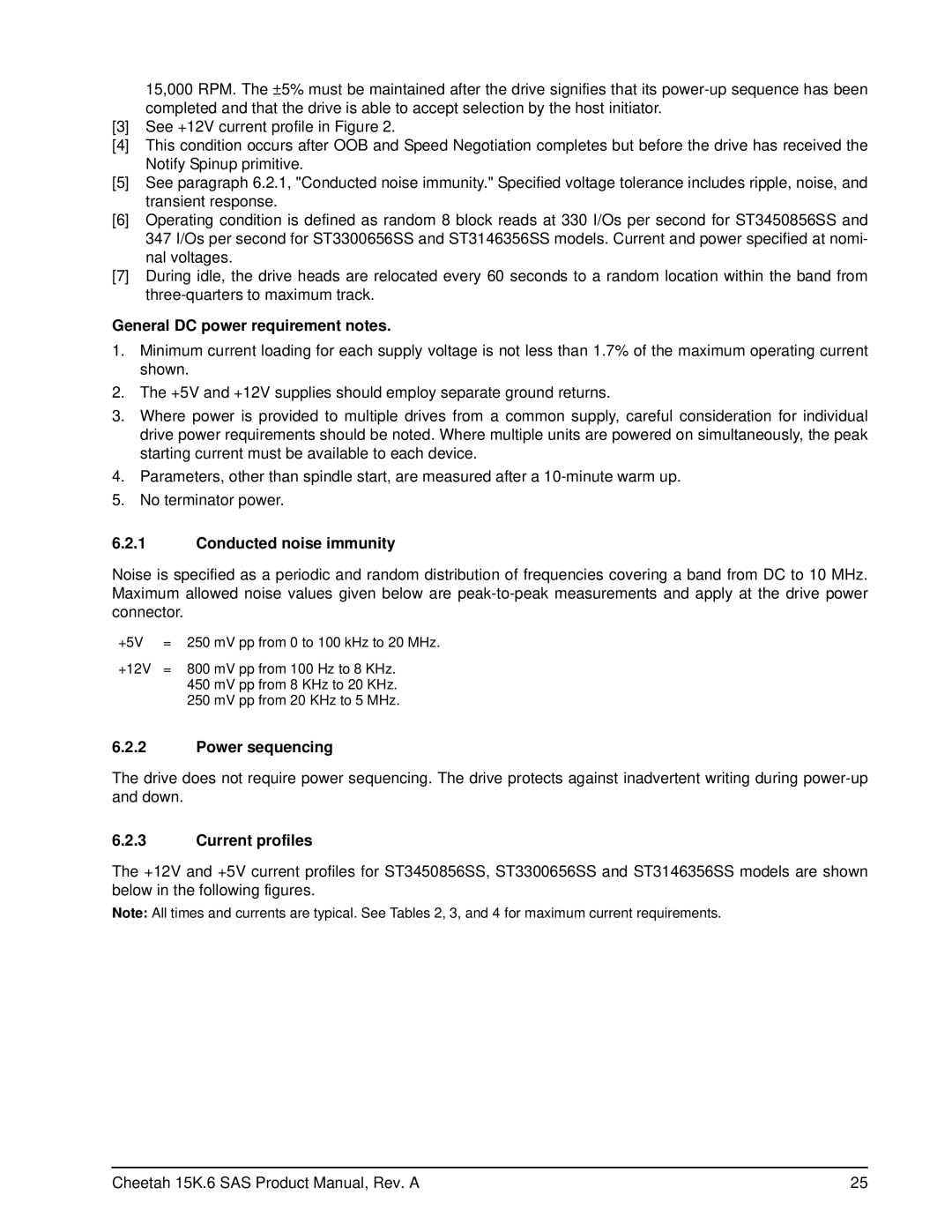15,000 RPM. The ±5% must be maintained after the drive signifies that its
[3]See +12V current profile in Figure 2.
[4]This condition occurs after OOB and Speed Negotiation completes but before the drive has received the Notify Spinup primitive.
[5]See paragraph 6.2.1, "Conducted noise immunity." Specified voltage tolerance includes ripple, noise, and transient response.
[6]Operating condition is defined as random 8 block reads at 330 I/Os per second for ST3450856SS and 347 I/Os per second for ST3300656SS and ST3146356SS models. Current and power specified at nomi- nal voltages.
[7]During idle, the drive heads are relocated every 60 seconds to a random location within the band from
General DC power requirement notes.
1.Minimum current loading for each supply voltage is not less than 1.7% of the maximum operating current shown.
2.The +5V and +12V supplies should employ separate ground returns.
3.Where power is provided to multiple drives from a common supply, careful consideration for individual drive power requirements should be noted. Where multiple units are powered on simultaneously, the peak starting current must be available to each device.
4.Parameters, other than spindle start, are measured after a
5.No terminator power.
6.2.1Conducted noise immunity
Noise is specified as a periodic and random distribution of frequencies covering a band from DC to 10 MHz. Maximum allowed noise values given below are
+5V | = | 250 mV pp from 0 to | 100 kHz to 20 MHz. |
+12V | = | 800 mV pp from 100 | Hz to 8 KHz. |
|
| 450 mV pp from 8 KHz to 20 KHz. | |
|
| 250 mV pp from 20 KHz to 5 MHz. | |
6.2.2Power sequencing
The drive does not require power sequencing. The drive protects against inadvertent writing during
6.2.3Current profiles
The +12V and +5V current profiles for ST3450856SS, ST3300656SS and ST3146356SS models are shown below in the following figures.
Note: All times and currents are typical. See Tables 2, 3, and 4 for maximum current requirements.
Cheetah 15K.6 SAS Product Manual, Rev. A | 25 |
